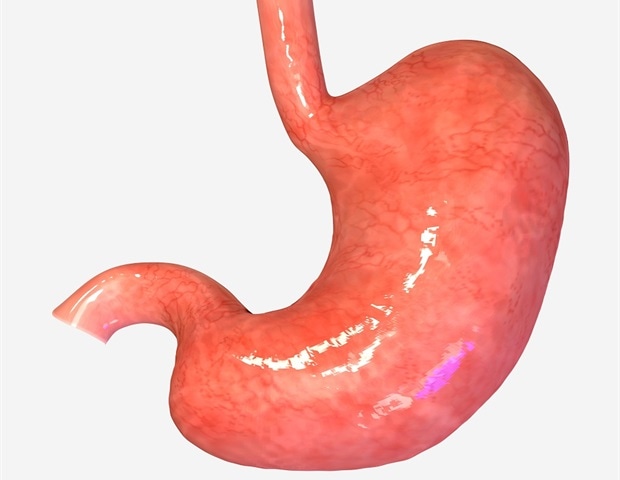Health
New Study Unveils Molecular Pathways in Gastric Cancer Development

New research has mapped the complex molecular changes associated with the progression of gastric cancer, revealing critical insights into how this malignancy develops. A team from Peking University Cancer Hospital & Institute published their findings in the journal Cancer Biology & Medicine in September 2025, detailing how infection with Helicobacter pylori (H. pylori) plays a pivotal role in the stepwise transformation from gastric inflammation to cancer.
Gastric cancer typically evolves through several stages, starting with superficial gastritis, progressing to chronic atrophic gastritis, and culminating in intestinal metaplasia and eventually malignancy. H. pylori infection is responsible for nearly 90% of non-cardia gastric cancers, yet the molecular mechanisms linking this infection to cancer progression have remained poorly understood. Despite previous studies examining inflammation and immune responses, a comprehensive perspective on the molecular signatures involved has been lacking.
To address this gap, the research team performed extensive analyses using large-scale proteomic profiling and single-cell transcriptomic sequencing on gastric tissues from 166 individuals in Linqu, a high-risk region in China, and 99 patients from Beijing. The study profiled over 4,200 proteins, identifying 28 proteins that serve as key markers of H. pylori infection and gastric cancer. Notably, proteins such as OLFM4 and ENO1 were found to be up-regulated, while GSN and IGFBP2 were down-regulated.
Uncovering Predictive Biomarkers
To evaluate the predictive capabilities of these findings, the research team developed a 15-protein tissue panel that stratified patients according to their risk of developing cancer. Those identified in the highest risk quartile exhibited over seven-fold increased odds of progressing to neoplasia. Extending their analysis, the researchers validated a four-protein circulating panel (OLFM4, ENO1, GSN, IGFBP2) using data from the UK Biobank, which included 48,529 participants. Individuals categorized in the high-risk group were nearly four times more likely to develop gastric cancer compared to those in the lowest risk category.
This research underscores a reproducible molecular trajectory underlying infection-driven gastric carcinogenesis. By integrating tissue proteomics, single-cell sequencing, and long-term follow-up data, the study identifies consistent protein markers that delineate the stepwise development of gastric cancer.
According to Dr. Wenqing Li, the senior author of the study, “These findings not only improve our understanding of how H. pylori infection reshapes the gastric environment but also provide powerful tools for risk stratification.” The establishment of tissue-based and circulating protein panels is anticipated to revolutionize gastric cancer prevention strategies. Current endoscopic screening methods are costly and invasive, which limits their implementation, especially in resource-constrained regions. Non-invasive blood-based markers could facilitate scalable, population-wide screening to identify individuals most in need of follow-up.
Beyond clinical applications, the molecular signatures identified in this study also illuminate the fundamental biology of infection-induced cancer, suggesting possible therapeutic targets for intervention. As these biomarkers undergo further validation, they could form the foundation of precision medicine approaches aimed at intercepting gastric cancer development at its earliest stages.
This research represents a significant step forward in the fight against gastric cancer, offering hope for enhanced prevention and early detection strategies that could save countless lives.
-

 Entertainment3 months ago
Entertainment3 months agoAnn Ming Reflects on ITV’s ‘I Fought the Law’ Drama
-

 Entertainment4 months ago
Entertainment4 months agoKate Garraway Sells £2 Million Home Amid Financial Struggles
-

 Health3 months ago
Health3 months agoKatie Price Faces New Health Concerns After Cancer Symptoms Resurface
-

 Entertainment3 months ago
Entertainment3 months agoCoronation Street’s Carl Webster Faces Trouble with New Affairs
-

 Entertainment3 months ago
Entertainment3 months agoWhere is Tinder Swindler Simon Leviev? Latest Updates Revealed
-

 Entertainment4 months ago
Entertainment4 months agoMarkiplier Addresses AI Controversy During Livestream Response
-

 Science1 month ago
Science1 month agoBrian Cox Addresses Claims of Alien Probe in 3I/ATLAS Discovery
-

 World2 weeks ago
World2 weeks agoBailey Announces Heartbreaking Split from Rebecca After Reunion
-

 Health4 months ago
Health4 months agoCarol Vorderman Reflects on Health Scare and Family Support
-

 Entertainment4 months ago
Entertainment4 months agoKim Cattrall Posts Cryptic Message After HBO’s Sequel Cancellation
-

 Entertainment3 months ago
Entertainment3 months agoOlivia Attwood Opens Up About Fallout with Former Best Friend
-

 Entertainment2 weeks ago
Entertainment2 weeks agoCoronation Street Fans React as Todd Faces Heartbreaking Choice











